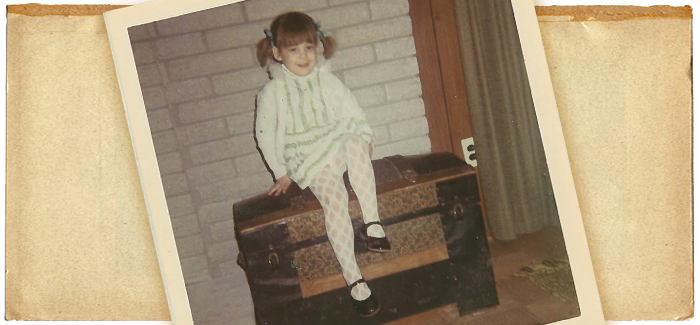
(Photo courtesy Laura Demanski)
The tales we tell about our parents, and they about us.
My parents have a story they like to embarrass me with, even some 40 years later. It happened the first time I shared responsibility with my mother for selecting a Father’s Day gift. Crucially, this involved being entrusted with sensitive information and keeping it to myself.
For a good week, the information stayed classified, the secret shrouded. We hid the shopping bag under my bed and later wrapped the box. As the great day approached, my anticipation simmered without quite breaking the surface. But that Sunday morning, while the master bedroom still snoozed, it boiled over and I burst through the door clutching the box and cried “Happy slippers!”—then burst into tears, much to the poorly muffled hilarity of the rest of the room, or so I gather.
I really enjoy that story, actually. It does the opposite of embarrassing me—it may represent me at the height of my charms. I told an abbreviated version on Facebook one Father’s Day and it got lots of likes, a predictable reception. Stories parents tell about their children, young and grown, make reliable crowd-pleasers and are eminently recyclable. Such stories keep it simple and operate by affection, even or especially when reporting lapses and misdeeds. I don’t think I laughed as hard all last year as when reading the note a friend shared on social media from her son at summer camp, unceremoniously demanding cash and care packages: “I need money now, so I can’t write a long letter.”
Children’s stories about their parents are a different genre—you never know what you’ll get, but if it’s honest it will be neither short nor simple. I’m not thinking of your Mommie Dearests, but books like Mary Karr’s The Liars’ Club and Ruth Reichl’s Not Becoming My Mother (renamed For You, Mom. Finally. when it was released in paperback).
Open somebody’s first book and, many times, you’ll find it dedicated to one or both of the writer’s parents: a personally momentous act of creation offered to those who created the person. Two alumni who contributed to this issue, Leslie Maitland, AB’71, and Greg Bellow, AB’66, AM’68, followed that dedicatory path, but went much further, writing their first books about a beloved mother and father, respectively (see “Crossing the Borders of Time” and “Awakened by a Grave Robbery”). In each case, the difficulty of writing honestly about a parent—a version of oneself, human, imperfect—becomes part of the story.
